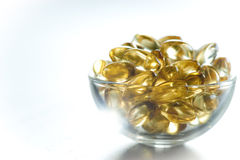IMPROVEMENT DIET FOR INCREASING YOUR VITAMIN INTAKE BY TARGETING NATURAL SOURCES.
20.02.2019 in HAIR LOSS HEALTH NEWSThe best approach to ensure you get a variety of vitamins and minerals, and in the proper amounts, is to adopt a broad healthy diet. This involves an emphasis on fruits and vegetables, whole grains, beans and legumes, low-fat protein, and dairy products.
The good news is that many common foods contain multiple mineral and vitamin sources, so it is easy to meet your daily needs from everyday meals which will improve your general health and your hair.
Eat at least five portions of a variety of fruit and vegetables a day.
Starchy food should make up just over a third of the food we eat.
Have some dairy or dairy alternatives (such as soya drinks and yoghurts). Choose lower-fat and lower-sugar options.
Eat some beans, pulses, fish, eggs, meat and other protein. Aim for at least two portions of fish every week – one of which should be oily, such as salmon or mackerel.
Choose unsaturated oils and spreads and eat in small amounts.
Eat foods high in fat, salt and sugar less often and in small amounts.
Vitamins and minerals are as essential for living as air and water. Not only do they keep your body healthy and functional, they protect you from a variety of diseases.
Vitamins and minerals get thrown together, but they are quite different. Vitamins are organic substances produced by plants or animals. They often are called “essential” because they are not synthesized in the body (except for vitamin D) and therefore must come from food.
Minerals are inorganic elements that originate from rocks, soil, or water. However, you can absorb them indirectly from the environment or an animal that has eaten a particular plant.
Two types of Vitamins
Vitamins are divided into two categories: water soluble—which means the body expels what it does not absorb—and fat soluble where leftover amounts are stored in the liver and fat tissues as reserves.
The water-soluble vitamins are the eight B vitamins (B-1, B-2, B-3, B-5, B-6, B-7, B-9, and B-12) and vitamin C.
The fat-soluble vitamins are A, D, E, and K.
Vitamin Sources
Water soluble:
B-1: ham, soymilk, watermelon, acorn squash.
B-2: milk, yogurt, cheese, whole and enriched grains and cereals.
B-3: meat, poultry, fish, fortified and whole grains, mushrooms, potatoes.
B-5: chicken, whole grains, broccoli, avocados, mushrooms.
B-6: meat, fish, poultry, legumes, tofu and other soy products, bananas.
B-7: Whole grains, eggs, soybeans, fish.
B-9: Fortified grains and cereals, asparagus, spinach, broccoli, legumes (black-eyed peas and chickpeas), orange juice.
B-12: Meat, poultry, fish, milk, cheese, fortified soymilk and cereals.
Vitamin C: Citrus fruit, potatoes, broccoli, bell peppers, spinach, strawberries, tomatoes, Brussels sprouts.
Fat soluble:
Vitamin A: beef, liver, eggs, shrimp, fish, fortified milk, sweet potatoes, carrots, pumpkins, spinach, mangoes.
Vitamin D: fortified milk and cereals, fatty fish.
Vitamin E: vegetables oils, leafy green vegetables, whole grains, nuts.
Vitamin K: cabbage, eggs, milk, spinach, broccoli, kale.
Minerals: There are many minerals, but certain ones are necessary for optimal health. Minerals are split into two groups: major and trace. Major ones are not necessarily more important than trace, but it means there are greater amounts in your body.
Major:
Calcium: yogurt, cheese, milk, salmon, leafy green vegetables.
Chloride: salt.
Magnesium: spinach, broccoli, legumes, seeds, whole-wheat bread.
Potassium: meat, milk, fruits, vegetables, grains, legumes
Sodium: salt, soy sauce, vegetables.
Sodium: salt, soy sauce, vegetables
Trace:
Chromium: meat, poultry, fish, nuts, cheese.
Copper: shellfish, nuts, seeds, whole-grain products, beans, prunes.
Fluoride: fish, teas.
Iodine: Iodized salt, seafood.
Iron: red meat, poultry, eggs, fruits, green vegetables, fortified bread.
Manganese: nuts, legumes, whole grains, tea.
Selenium: organ meat, seafood, walnuts.
Zinc: meat, shellfish, legumes, whole grains.
At every meal you should try to include one food from every category or at least 3 times a week.
Drink at least 2 litres of water, not tea or coffee, extra per day to keep properly dehydrated.
Please keep a diary for 4 days before your next appointment.
You can telephone us on 0207 152 4473 and speak directly to us and seek professional qualified advice from a Trichologist.
This will allow our trichologists to diagnose your problem correctly and recommend the correct trichologically prescribed treatments on the same day.
However, not all cases are treatable. But with early diagnosis and treatment you will give yourself and us the best possible chance to help you.
Our Anti-Hair Loss Treatments are suitable for both men and women of all ages and are exclusive to The Hair Centre.
Get in touch with us today and book your non-chargeable consultation. Call us on 0207 152 4473 today.










